Politics
High-stakes Oval Office face-off sees Trump, mayor-elect Mamdani set aside differences
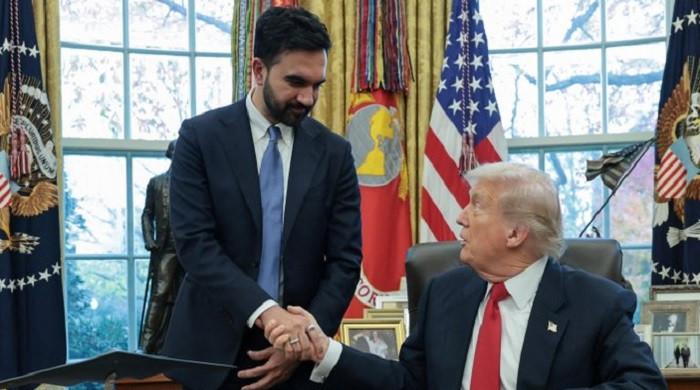
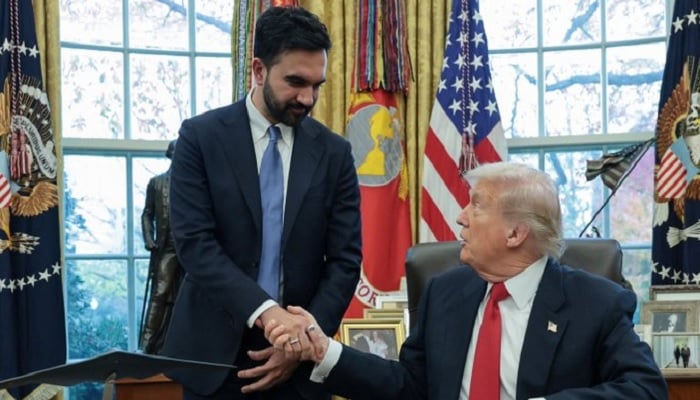
- First meeting between 79-year-old Rep, 34-year-old Dem socialist goes well.
- Trump refrains from unpredictable, televised Oval Office exchanges.
- US president had predicted meeting would be ‘quite civil.’
US President Donald Trump gave a warm greeting to incoming New York City mayor Zohran Mamdani at the White House on Friday, praising Mamdani’s electoral victory in the first in-person meeting for the political opposites, who have clashed over everything from immigration to economic policy.
A democratic socialist and little-known state lawmaker who won New York’s mayoral race earlier this month, Mamdani requested the sit-down with Trump to discuss cost-of-living issues and public safety.
After months of trading barbs and insults in the media, the mayor-elect and the president appeared to put aside their differences and quickly strike a rapport in the Oval Office, a setting that Trump has sometimes used to embarrass heads of state.
“We agreed on a lot more than I thought,” Trump said after inviting journalists into the Oval Office following a private meeting. “We have one thing in common: we want this city of ours that we love to do very well.”
Sitting at his desk, Trump smiled up at Mamdani, who stood to the president’s right, and offered his congratulations on winning the mayoral election earlier this month: “He really ran an incredible race against some very tough people, very smart people.”
“It was a productive meeting focused on a place of shared admiration and love, which is New York City, and the need to deliver affordability to New Yorkers,” Mamdani said.
Trump said he was happy to put aside partisan differences. “The better he does, the happier I am,” Trump said.
As Mamdani surged in the polls to victory, Trump, a Republican, issued threats to strip federal funding from the biggest US city. The mayor-elect has regularly criticised a range of Trump’s policies, including plans to ramp up federal immigration enforcement efforts in New York City, where four in ten residents are foreign-born.
The 79-year-old president, a former New York resident, has labelled Mamdani, 34, as a “radical left lunatic,” a communist and a “Jew hater,” without offering evidence for those assertions.
Mamdani has espoused Nordic-style democratic socialism, not communism. While a staunch critic of Israel, he was endorsed by prominent Jewish politicians, is bringing in Jewish staff in his new administration, notably New York Police Commissioner Jessica Tisch, and has repeatedly condemned antisemitism.
Trump tempered his language on Friday shortly before the mayor-elect’s arrival, saying he expected it to be “quite civil” and commending Mamdani for a “successful run.”
“I was hitting him a little hard,” Trump told “The Brian Kilmeade Show” on Fox News. “I think we’ll get along fine. Look, we’re looking for the same thing: we want to make New York strong.”
Earlier, Mamdani posted a grinning selfie on social media, taken in the seat of a plane bound for Washington.
Trump’s Oval Office meetings have been wildly unpredictable, including respectful encounters with opponents and ambushes of guests, such as Ukrainian President Volodymyr Zelenskiy and South Africa’s Cyril Ramaphosa.
Mamdani, who will be sworn in as mayor on January 1, said at a press conference the day before heading to Washington that he had “many disagreements with the president.”
“I intend to make it clear to President Trump that I will work with him on any agenda that benefits New Yorkers,” he told reporters outside New York’s City Hall. “If an agenda hurts New Yorkers, I will also be the first to say so.”
Trump thinks Mamdani was ‘very nice’ in calling him
Uganda-born Mamdani will be the first Muslim and first South Asian mayor in the city that is home to Wall Street. His energetic, social media-savvy campaign provoked debate about the best path for Democrats. Out of power in Washington and divided ideologically, Democrats are mainly unified by their opposition to Trump, who is constitutionally prohibited from seeking another term in 2028.
Mamdani vowed to focus on affordability issues, including the cost of housing, groceries, childcare and buses in a city of 8.5 million people. New Yorkers pay nearly double the average rent nationwide.
Inflation has been a major issue for Americans, and it’s one on which they give Trump low marks. Just 26% of Americans say Trump is doing a good job at managing the cost of living, according to a Reuters/Ipsos poll this week.
The US federal government is providing $7.4 billion to New York City in fiscal year 2026, or about 6.4% of the city’s total spending, according to a New York State Comptroller report. It was not clear what legal authority Trump could claim for withholding any funding mandated by Congress.
The two men were again trading barbs within hours of Mamdani’s election.
“If anyone can show a nation betrayed by Donald Trump how to defeat him, it is the city that gave rise to him,” Mamdani told cheering supporters in his victory speech, which called for Trump to “turn the volume up.”
Trump said he was puzzled by Mamdani’s speech after excerpts were replayed to him during the Fox News interview on Friday morning.
“I don’t know exactly what he means by ‘turning the volume up.’ He has to be careful when he says that to me,” Trump said. “He was very nice in calling, as you know, and we’re going to have a meeting.”
Politics
Bangladesh quake kills nine, injures hundreds

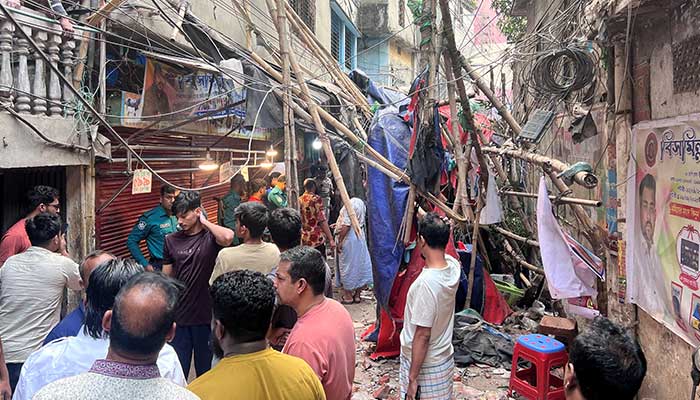
- Govt taking “all necessary measures”, says Muhammad Yunus.
- Quake leaves 14 buildings damaged, fire broke out at power station.
- Tremors also felt in Kolkata, over 325 km away from the epicentre.
DHAKA: A powerful earthquake struck outside Bangladesh’s crowded capital Dhaka on Friday, killing at least nine people and injuring more than 300, authorities said.
The 5.5-magnitude quake struck at 10:38 am (0438 GMT) near the city of Narsingdi, about 33 kilometres (16 miles) from Dhaka, according to the US Geological Survey.
The tremor sparked fear and chaos, with many in the Muslim-majority nation of 170 million people at home on their day off.
AFP reporters in Dhaka saw people weeping in the streets while others looked shocked.
The interim government’s press office said at least nine people were killed and more than 300 people were injured.
At least 14 buildings were damaged, and fire broke out at a power station but was later brought under control.

Interim leader Muhammad Yunus expressed in a statement his “deep shock and sorrow over the news of casualties in various districts”.
He added that the government was taking “all necessary measures”.
Nine people were taken to hospitals in Dhaka with serious injuries, according to the government’s health department.
A witness told AFP that masonry from an eight-storey building in Dhaka had fallen onto a busy road below.
“Many people had gathered at the butcher’s” when the rubble fell, said Sakib Hossain, 50, who rushed out after hearing a loud bang.
“I saw vans carrying injured people,” he added.
Mohammad Sharif, who was in a queue to buy meat, said the debris fell from above on people standing ahead of him.
“A child suffered a serious injury to his neck and died immediately,” he told AFP.
The shaking lasted for 26 seconds, according to the Bangladesh Meteorological Department, which recorded the magnitude as 5.7.
“The situation is being closely monitored, and all relevant departments have been directed to immediately go to the field to assess any possible damages,” Yunus said.
The 85-year-old Nobel Peace Prize winner was selected to lead the country after a mass uprising toppled the government last year. Elections are slated for February 2026.
The tremors on Friday were felt as far as the Indian city of Kolkata, more than 325 kilometres (about 200 miles) away from the epicentre.
AFP reporters there saw people fleeing offices and homes after the sudden jolt.
“I felt tremors and my bed moved […] I rushed out of my room,” said Sumit Dutta, 66.
There were no immediate reports of casualties or significant damage in India.
Politics
Internet users flag India’s fighter jet ‘oil leak’ after Tejas fatal crash at Dubai Airshow
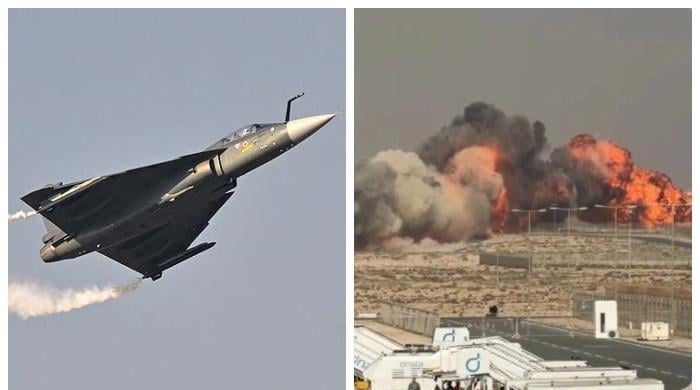
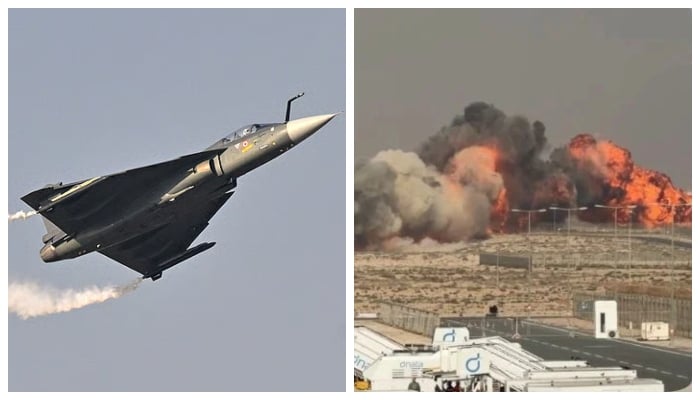
Indian fighter jet Tejas crashed during a flying display at the Dubai Airshow on Friday, killing the pilot, and people on the internet were quick to point out the reason — though no official clarification has been provided yet.
Talks of technical issues with the Indian fighter jet had been circulating for days after a video reportedly showed an “oil leak”.
However, Indian officials refuted the reports about an oil leak, saying that the “fluid observed was part of a routine draining process, not a technical malfunction”.
In a post on X, India’s Press Information Bureau (PIB) stated that the fluid observed coming from the Tejas was part of a standard pre-flight procedure to remove condensation.
The PIB termed the video a “false narrative”, being pushed to “undermine the fighter’s proven technical reliability”.
However, netizens were quick to highlight the video after the deadly crash, noting that the Indian Air Force flew the fighter jet despite the technical issues.
Meanwhile, defence expert Air Marshal (retd) Asim Saleem said that such crashes were not unusual during “risky air aerobatics”.
“Since you are free-styling with the plane and are extremely close to the ground, therefore, the margin of error is zero,” he said while speaking to Geo News.
According to Air Marshal Saleem, such crashes typically result from either pilot error or technical problems with the aircraft.
He, however, pointed out the oil leak video, saying that there were “more chances of a technical problem in this instance”.
“Their air chief also made a statement that the Hindustan Aeronautics Limited’s products are substandard and they aren’t satisfactory as per the Indian Air Force’s standards,” he said.
He also added that the pressure of participating in such shows, where both the fighter jet and the pilot are in the spotlight, increases the likelihood of a mistake.
Politics
Afghanistan seeks new trade routes as Pakistan ties sour
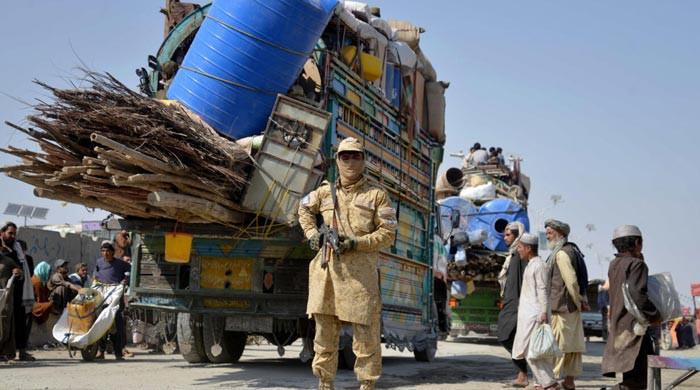
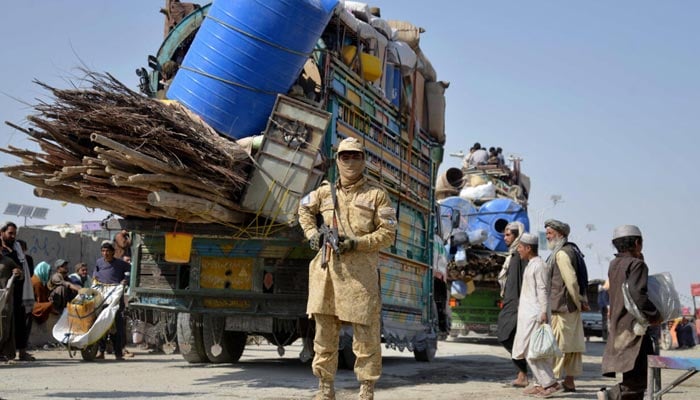
- Trade with Iran and Turkmenistan jumped significantly.
- Russia received Afghan apples and pomegranates.
- Afghan exports face delays without cold storage.
Afghanistan is scrambling to diversify its trade partners after a deadly border clash with Pakistan last month brought ties to their lowest point in years.
The South Asian neighbours have been locked in an increasingly bitter dispute since the Taliban took over Kabul in 2021, with Islamabad saying that Afghanistan harbours the militants behind cross-border attacks.
Abdul Ghani Baradar, Afghanistan’s deputy prime minister for economic affairs, urged traders last week to “redirect their trade toward other alternative routes instead of Pakistan”.
Pakistan is landlocked Afghanistan’s top trading partner, supplying rice, pharmaceuticals and raw materials, while taking in 45% of Afghan exports in 2024, according to the World Bank.
More than 70% of those exports, worth $1.4 billion, are perishable farm goods such as figs, pistachios, grapes and pomegranates.
Dozens of Afghan trucks were stranded with rotting produce when the frontier shut on October 12 due to deadly cross-border fire, which was followed by a fragile truce.
Losses have topped $100 million on both sides, and up to 25,000 border workers have been affected, according to the Pakistan-Afghanistan Joint Chamber of Commerce and Industry (PAJCCI), which seeks to promote bilateral trade.
Baradar warned traders that Kabul would not intervene if they kept relying on Pakistan.
Wary of further disruptions, the Taliban government is now hedging its bets with Iran, Central Asia — and beyond.
Pomegranates to Russia
Trade with Iran and Turkmenistan has jumped 60-70% since mid-October, said Mohammad Yousuf Amin, head of the Chamber of Commerce in Herat, in western Afghanistan.
Kabul also sent apples and pomegranates to Russia for the first time last month.
Russia is the only country to have officially recognised the Taliban administration.
Taliban leaders crave wider recognition and foreign investment, but sanctions on senior figures have made investors wary.
The vast market in India is a prime attraction. On Sunday, state-owned Ariana Afghan Airlines cut freight rates to the country of 1.4 billion people.
Two days later, Kabul sent its commerce and industry minister to New Delhi.
“Afghanistan has too many fruits and vegetables it cannot store because there are no refrigerated warehouses,” said Torek Farhadi, an economic analyst and former IMF adviser.
“Exporting is the only way,” he told AFP. And quickly, before the products spoil.
Kabul touts Iran’s Chabahar port as an alternative to Pakistan’s southern harbours, but Farhadi noted it is farther, costlier and hampered by US sanctions on Tehran.
‘Distraught’
“It’s better for both countries to end this trade war… They need each other,” Farhadi said as Pakistan maintains that the border closure has been done to curb militant infiltration.
The spokesman for Pakistan’s foreign ministry said on Friday that Islamabad had reached its “threshold of patience” after recent attacks.
“Either we get ourselves killed or we undertake very risky trade… This is a difficult choice that we have made,” spokesman Tahir Hussain Andrabi told a weekly briefing.
“Can you put a price tag on a human life, on a Pakistani life?” he said.
In Peshawar, near the frontier, Afghan produce has all but vanished from markets.
Grapes cost four times more, and tomatoes have more than doubled to over 200 rupees (70 cents) a kilogram, an AFP correspondent found.
On Monday, the PAJCCI urged Islamabad to act, warning of mounting costs as shipping containers bound for Afghanistan and Central Asia remain stuck in Pakistan.
Each container is racking up $150-$200 in daily port charges, the group said, adding: “With thousands of containers stuck, the collective economic burden has become unbearable and continues to grow with each passing day.”
Truck driver Naeem Shah, 48, has been waiting at the Pakistani border town of Chaman with sugar and cooking oil bound for Afghanistan.
“I haven’t been paid for a month. No matter who I call, they say there is no money because the border is closed,” he told AFP.
“If it doesn’t reopen, we will be distraught.”
-

 Tech6 days ago
Tech6 days agoNew carbon capture method uses water and pressure to remove CO₂ from emissions at half current costs
-

 Politics1 week ago
Politics1 week agoBritish-Pakistani honoured for transforming UK halal meat industry
-

 Business7 days ago
Business7 days agoThese 9 Common Money Mistakes Are Eating Your Income
-

 Sports6 days ago
Sports6 days agoTexas A&M officer scolds South Carolina wide receiver after touchdown; department speaks out
-
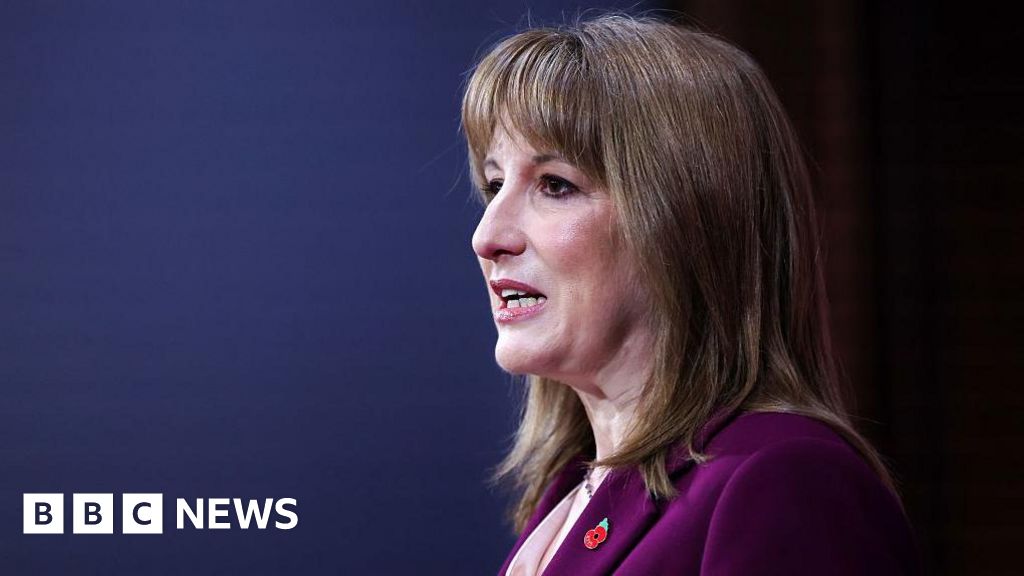
 Business1 week ago
Business1 week agoWhat’s behind Rachel Reeves’s hokey cokey on income tax rises?
-

 Fashion1 week ago
Fashion1 week agoAfter London, Leeds and Newcastle, next stop Glasgow for busy Omnes
-

 Tech1 week ago
Tech1 week ago$25 Off Exclusive Blue Apron Coupon for November 2025
-

 Sports1 week ago
Sports1 week agoApple scrapping MLS Season Pass service in ’26






